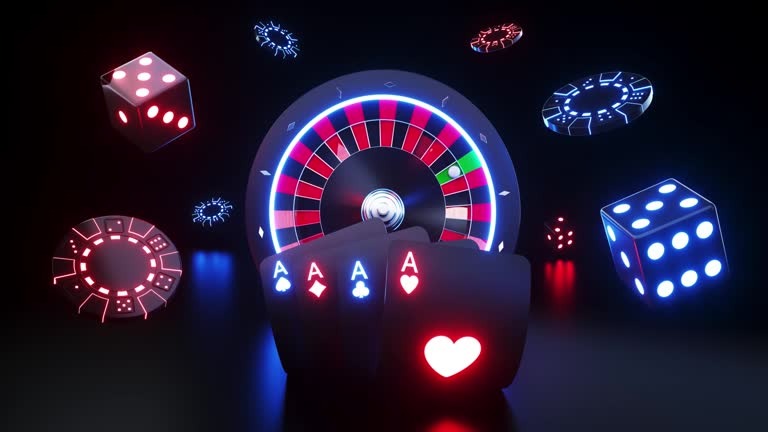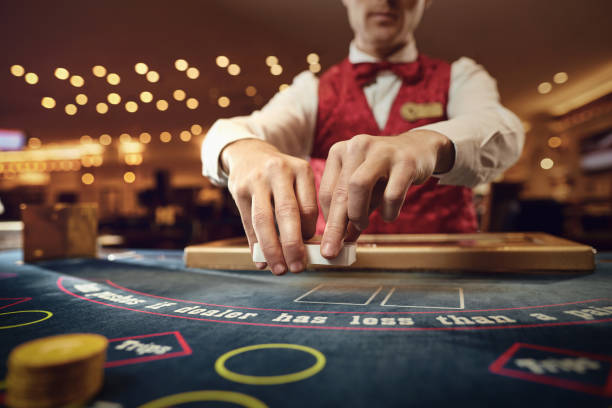The illusion of control can be a potent element that can lead to harmful decisions when it comes to gambling. This can lead to players making decisions that are irrational and harmful to their finances as well as relationships.
Researchers found that stimulation of the anterior insula takes place during near-misses and monetary gains. The activity of this area is in line with the GRCS, a 88clb questionnaire measure of gambling-related distortions’ susceptibility.
Game design
Casinos employ a number of mental tricks to keep gamblers gambling. They include complimentary drinks, the absence of clocks, and the illusion of control to lower inhibitions. These subtle cues encourage gamblers to invest more money than they planned to and could lead to a sunk cost fallacy that leads to continued play to try to recoup losses. However, despite these methods, casinos are still responsible for the vast majority of gambling related harms.
Through a simulation of a slot machine, researchers found that the presence of a stop button influenced how the players played. The study discovered that players who pressed the stop button performed more games and had a positive outcome than players who did not. This was due to erroneous perceptions of capability and skill that affect outcomes (Clark, and. and., 2013).
The game’s design is crucial to ensuring that players are entertained and are enjoying their time. Casino developers can improve the satisfaction of players by balancing luck and skills by introducing social interaction, improving gameplay, and offering personalized experiences. Developers can, for example provide tutorials that show players how to play and introduce advanced features in order to enhance their gameplay. They can also make use of leaderboards and achievements to stimulate players’ competitive instincts and create a sense accomplishment. Lastly, they can add features that allow players to modify their gaming experience based on their preferences.
Near-miss effect
Near-miss effect: Despite being a chance to win Some gamblers claim they are more active when they “nearly had a win”. It occurs when feedback from losses is similar to feedback for a win. It is a psychological distortion which makes gamblers believe that they have a hand in the outcomes of games. Near-miss effects are linked to behavioral and neurophysiological responses like an increase in heart rate and faster response times. However, these effects aren’t always the same.
Near-misses may increase gambling because they increase the probability of winning in slot machine simulations. This effect can also be associated with activity in the anterior insula. These results suggest the idea of personal control could be a major element in misinterpreting the game of chance as a game with skill.
In addition to the insula, there was also a stimulation in the ventral striatum which is involved in reward and decision-making. The near-miss effect is also correlated with greater motivation to play on in the form of the ratings for “continue to play” and the rACC responses. The rACC response is more powerful when participants choose the trials rather than those that are selected by computers. This indicates that close misses are more effective in promoting gambling when they are opted for by the participant.
The rewards aren’t fixed.
Behavioral science has long been interested in the various benefits of gambling. Contrary to fixed-ratio reinforcement, which rehabilitates behavior after a certain number of times, variable-ratio reinforcement alters the likelihood of rewarding behaviour. The gambler’s fallacy is a name of this. It is the belief that a subsequent outcome of a lottery will be closer to a previous winning one than would be expected from random-number theory. The belief that this is referred to as the bias of luck, is found in both humans and nonhumans.
The psychological effects of winning or losing in a casino slot game can be substantial. Understanding the psychology behind gambling and how people’s brains react when they win or losing could help researchers identify and tackle problem gambling behaviors.
Many casinos employ a variety of psychological methods to encourage gamblers to play by providing a bright environment with music and no clocks to confuse time perception, offering tiny regular rewards to keep players engaged as well as employing the “sunk cost fallacy” to make gamblers believe that continuing to losing is worth it. These techniques are designed to keep gamblers playing longer, and may contribute to the rise of addicts. Gamblers who are pathological often suffer from severe mental stress and are at likelihood of developing addiction issues.
The illusion of control
The illusion of control in gambling can cause people to take risks that they would not normally take. It can lead to financial losses and is linked to issues such as addiction depression, impulsivity and addiction. Many factors can affect the illusion of control like the house edge, close calls, and personal choices. This week, Dr Luke Clark of the Department of Experimental Psychology describes how these features lead gamblers into believing that they have control over their games that are determined by chance.
The illusion of control is a cognitive bias that leads people to believe they can influence outcomes. It’s also known as the gambler’s fallacy and is a factor in many forms of gambling behavior. This illusion is a key reason that some gamblers choose to gamble even after sustained losses. The Illusion of Control is one of a number of illusory beliefs that influence the gambling experience. This includes optimism bias and self-evaluations, also known as core self-evaluations (CSE), and location of control.
Researchers found that pathological gambling sufferers have a less accurate view of the future than control subjects. It is unclear if the distortion is specific to pathological gamblers. Researchers utilized a standard medical test to measure perceived contingency and a fictitious result, yet was free from the biases that come with introspection.



